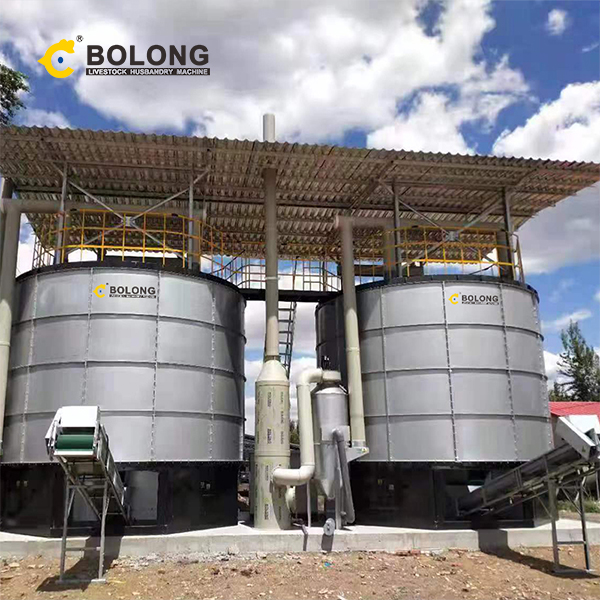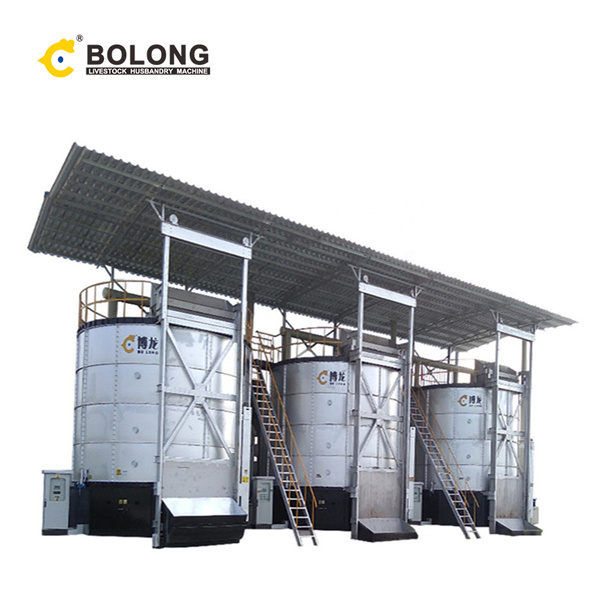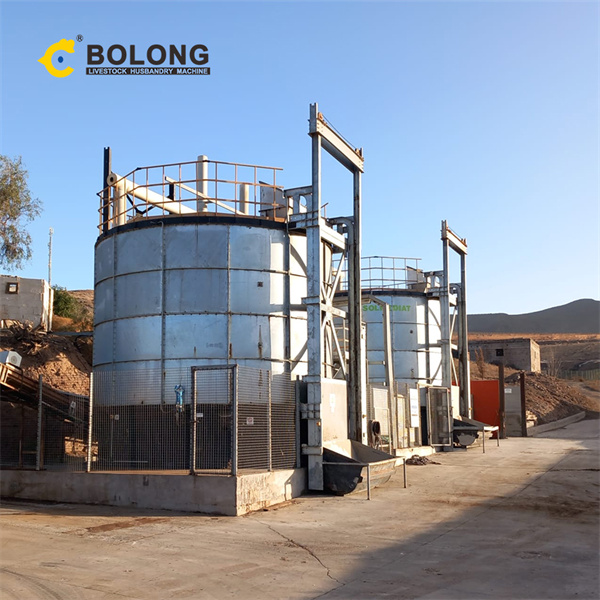With the increasing global emphasis on sustainable agriculture and environmental protection concepts, the use and production of organic fertilizer has gradually become an important direction of agricultural development. Especially in China, with the advancement of agricultural scale and modernization, more and more farms and agricultural enterprises began to pay attention to the production and application of organic fertilizer. Organic fertilizer composting machine as a key equipment to achieve organic waste resources, the production of efficient organic fertilizer, is gradually into the mainstream of agricultural production. In this paper, we will discuss the value of its application in agricultural production and business prospects from the economic benefits of organic fertilizer composting machine and cost analysis of two aspects.
Organic fertilizer composting machine is a kind of organic waste (such as animal manure, agricultural straw, food waste, etc.) into organic fertilizer equipment. By controlling the temperature, humidity, air circulation and other conditions, the microorganisms in the composting machine can efficiently decompose the waste and convert it into organic fertilizer rich in nutrients. This process not only reduces the environmental burden of waste, but also provides organic fertilizer for agricultural production, improves soil fertility, and increases crop yield and quality.
With the rise of organic agriculture and eco-agriculture, the application field of organic fertilizer composting machine is gradually expanding, and it has become an important equipment for livestock and poultry breeding, agricultural planting, food processing and other industries. At the same time, due to the increasing demand for organic fertilizer market, the market prospects of the composting machine is also more and more broad.

Although the organic fertilizer composting machine has significant economic benefits, but its initial investment costs, operating costs and other factors are also important factors that enterprises need to consider when making decisions. The following are the main cost components of organic fertilizer composting machine.
The initial investment in organic fertilizer composting machine includes equipment procurement, installation and commissioning, as well as the construction of related facilities. The price of the composting machine varies according to its model, capacity and technical level. A small composting machine (e.g., a few tons capacity) may cost tens of thousands of RMB, while a large and efficient composting machine system may cost hundreds of thousands to millions of RMB.
The organic fertilizer fermentation process requires the maintenance of a certain temperature and humidity, especially in large-scale production, and energy consumption is often an important part of the operating costs. Typically, composting machines use heating, ventilation, and humidity control to maintain microbial activity, and the energy costs required include electricity and heat. Depending on the working scale and operating hours of the composting machine, energy consumption may account for 20-30% of the operating costs.
Although most modern organic fertilizer composting machines have automated control systems, in practice, a certain number of technicians and operating workers are still needed for daily management, maintenance and monitoring. The level of labor cost depends on the number of workers and their salary level. In general, labor cost may account for 10%-15% of the operation cost.
Raw materials for organic fertilizer production mainly come from farm wastes. The collection, transportation, and storage of these raw materials also require certain costs. For farms, manure, as a natural resource, is relatively inexpensive to collect, while for farms or food processors, raw material procurement may require certain costs. Raw material procurement costs vary considerably from region to region, but usually do not account for a significant portion of the overall costs.
Routine maintenance of the composting machine and repair of equipment failures are also costs that must be considered. As the fermentation process of organic waste often involves high temperatures and humidity, the durability and stability of the equipment will directly affect its maintenance costs. After long-term use, the wear and tear of the equipment may lead to the need to replace certain parts, thus increasing maintenance costs.

Although the initial investment in organic fertilizer composting machine is large, but in the long run, its economic benefits are obvious, specifically in the following areas.
Organic fertilizer composting machine can convert waste into organic fertilizer, thus saving the cost of purchasing chemical fertilizer. Compared with traditional fertilizers, organic fertilizers not only provide more comprehensive nutrients (such as organic matter, trace elements, etc.), but also improve the soil structure, increase the water retention and fertility of the soil, and reduce the use of chemical fertilizers. By producing their own organic fertilizers, farms can improve crop yields and quality while reducing production costs.
Through the application of organic fertilizer composting machines, companies are not only able to convert agricultural waste into useful resources, but also avoid waste pollution of the environment and reduce the cost of waste treatment. For example, the farming industry through the composting machine treatment of livestock and poultry manure, not only can it be converted into organic fertilizer, but also reduce the impact of pollutants (such as ammonia, odor, etc.) on the surrounding environment, improve the environmental image of the enterprise and reduce the cost of treatment.
Organic fertilizers produced by organic fertilizers can improve the fertility of the soil, making crops healthier and more nutritious as they grow. These organic crops usually have a higher market value, especially in today’s increasingly popular organic farming and growing consumer demand for organic products. By producing high quality organic fertilizers, farms are able to achieve higher market competitiveness and economic returns.
In recent years, governments have given greater support to environmentally friendly agricultural projects, and many local governments have provided financial subsidies, tax breaks and other policies to promote the production and use of organic fertilizers. These policies not only help agricultural enterprises to reduce the investment threshold, but also improve the return on investment of organic fertilizer composting machine.

According to the production needs of different scales, the return on investment of organic fertilizer composting machines is generally between 2-5 years. For large-scale farms or enterprises, through the effective operation of organic fertilizer composting machine, its annual production of organic fertilizer can be up to thousands of tons, with considerable sales. Meanwhile, with the promotion of environmental protection policies and consumers’ concern for green food, the market demand for organic fertilizers is expected to continue to grow in the coming years, which will further contribute to the return on investment.
In conclusion, despite the large initial investment in the organic fertilizer composting machine and the existence of certain operating costs, its long-term economic benefits are obvious. By reducing the cost of fertilizer, improving resource utilization, reducing environmental pollution and other advantages, organic fertilizer composting machine has become one of the important equipment for modern agricultural development. With the continuous innovation of technology and market demand